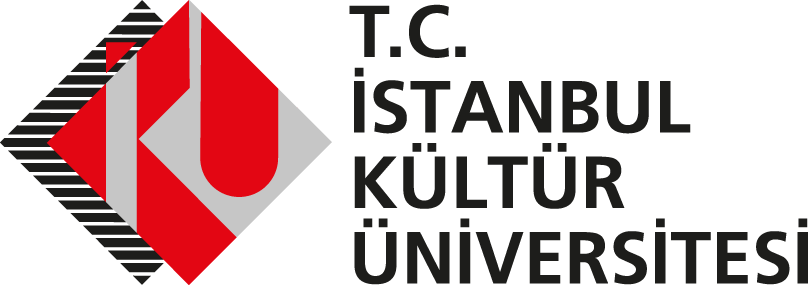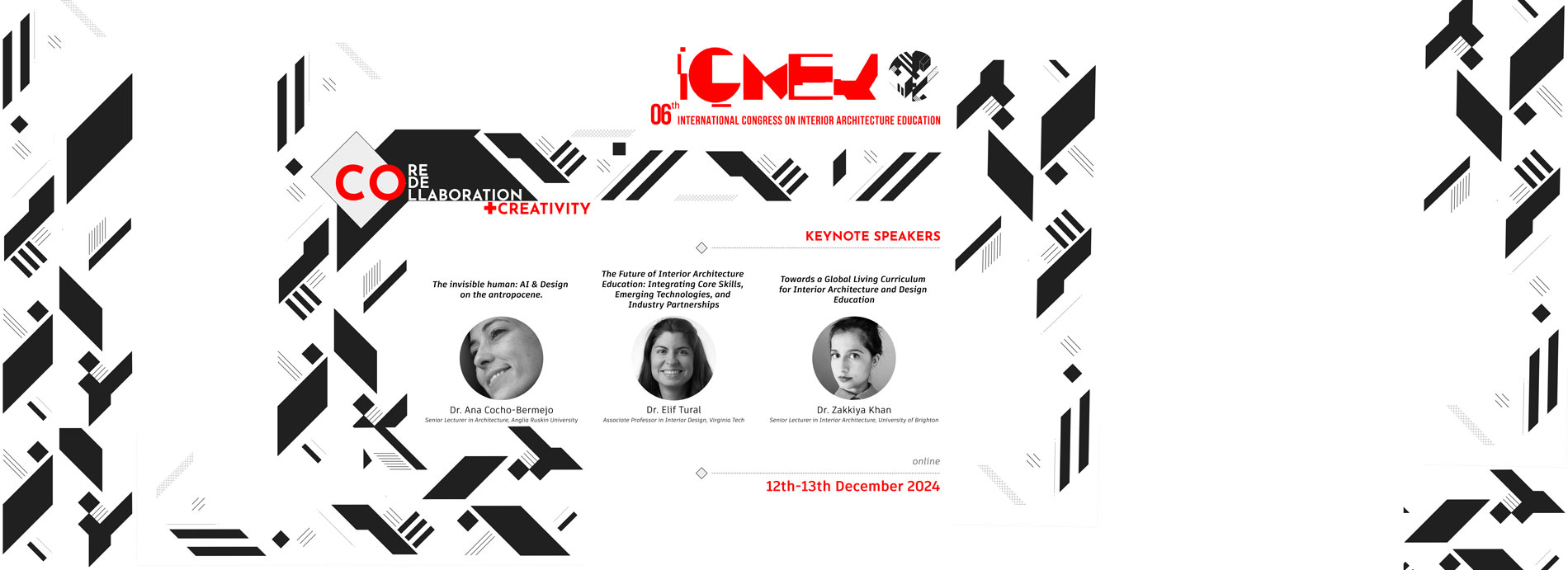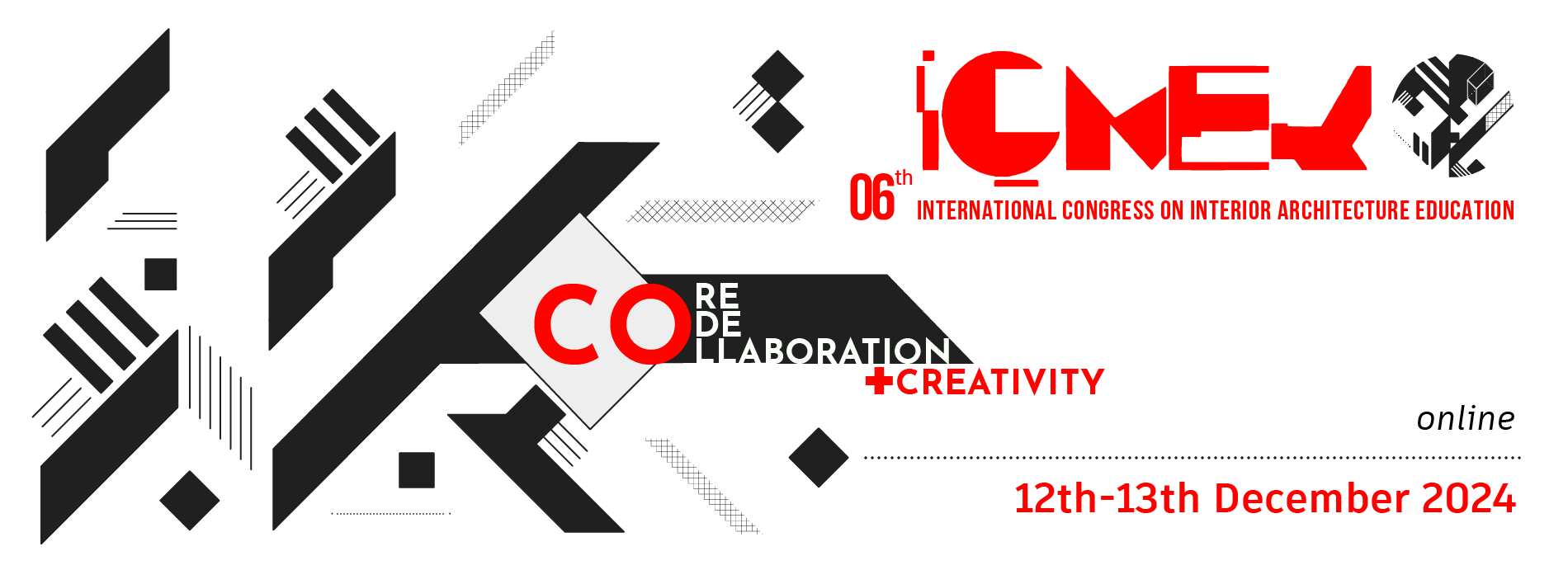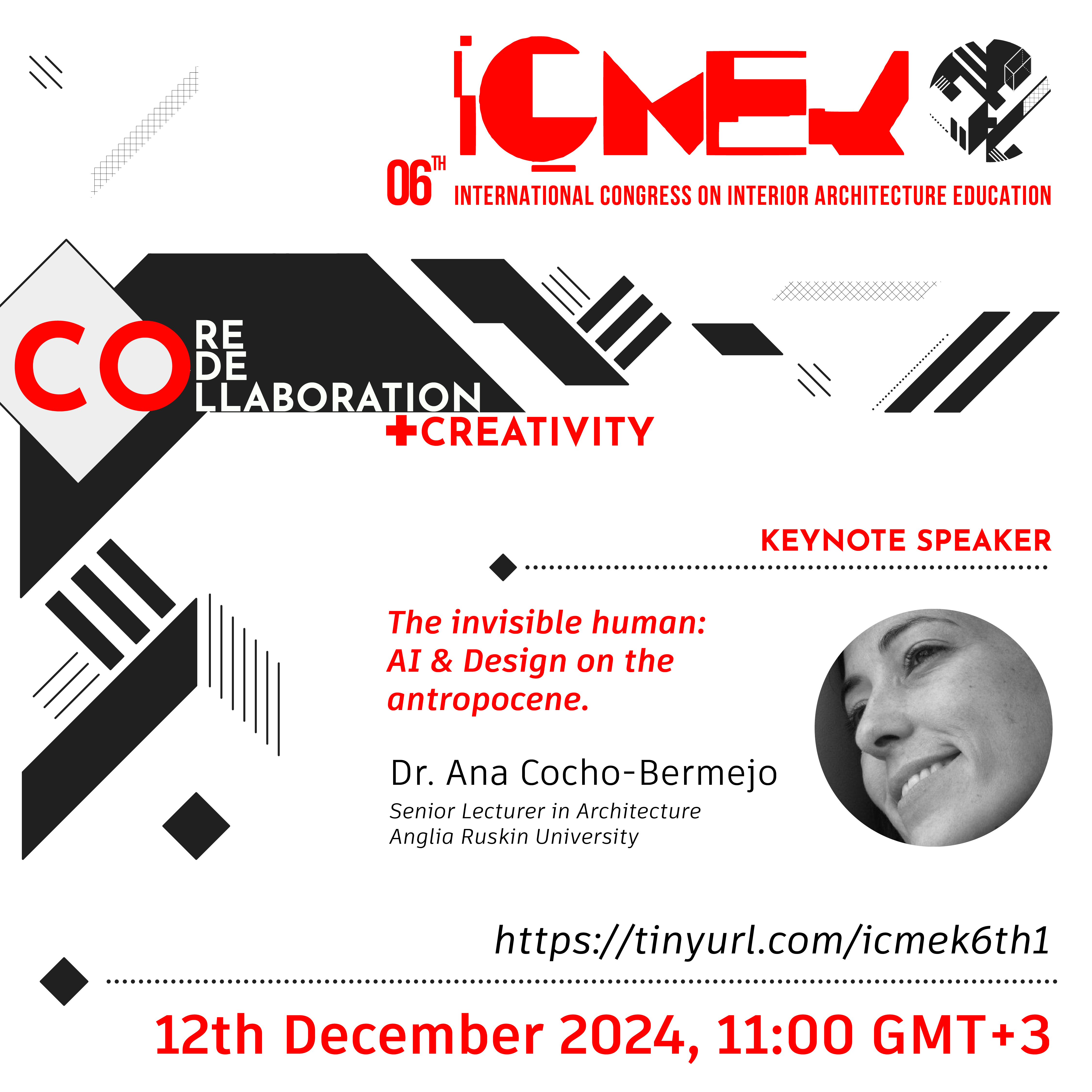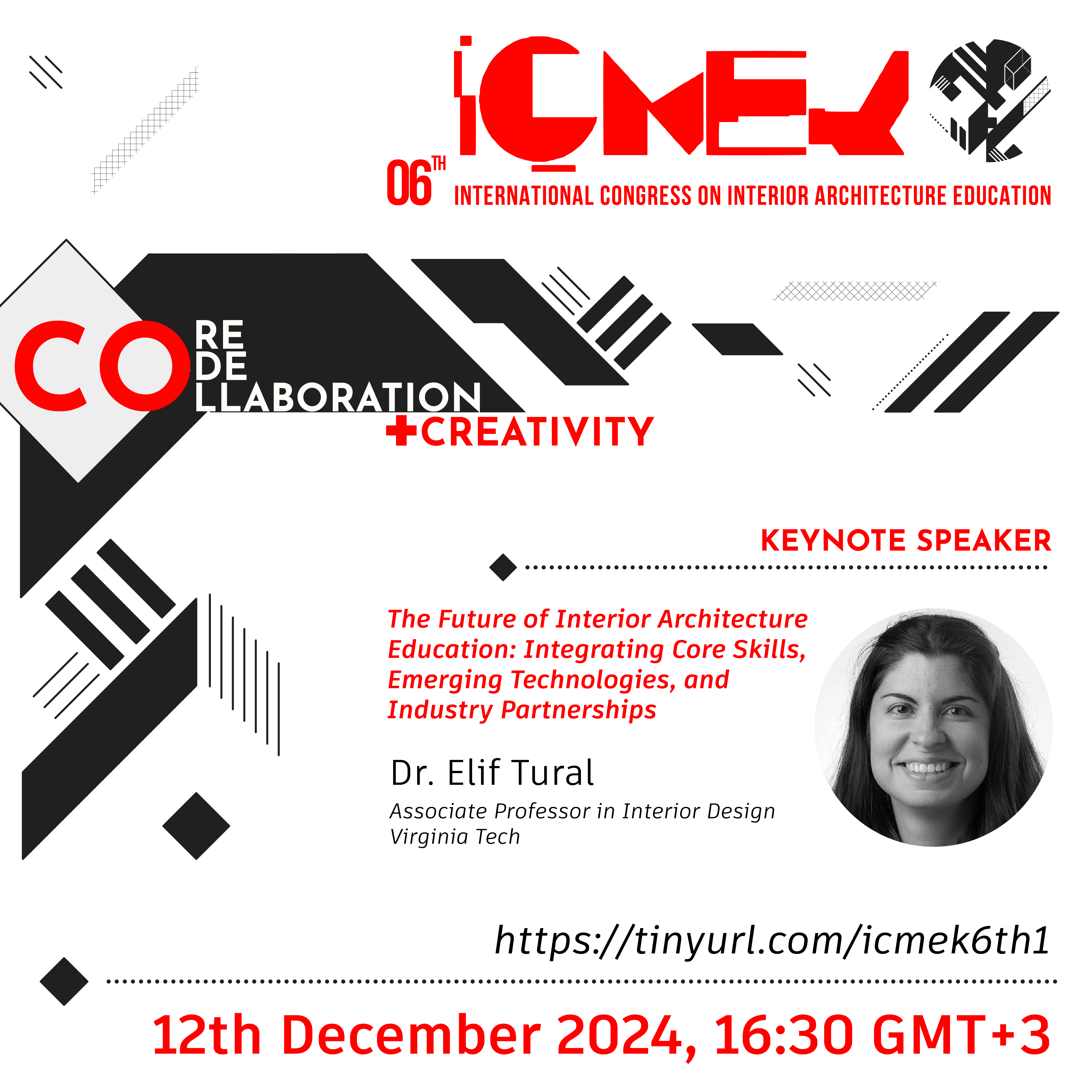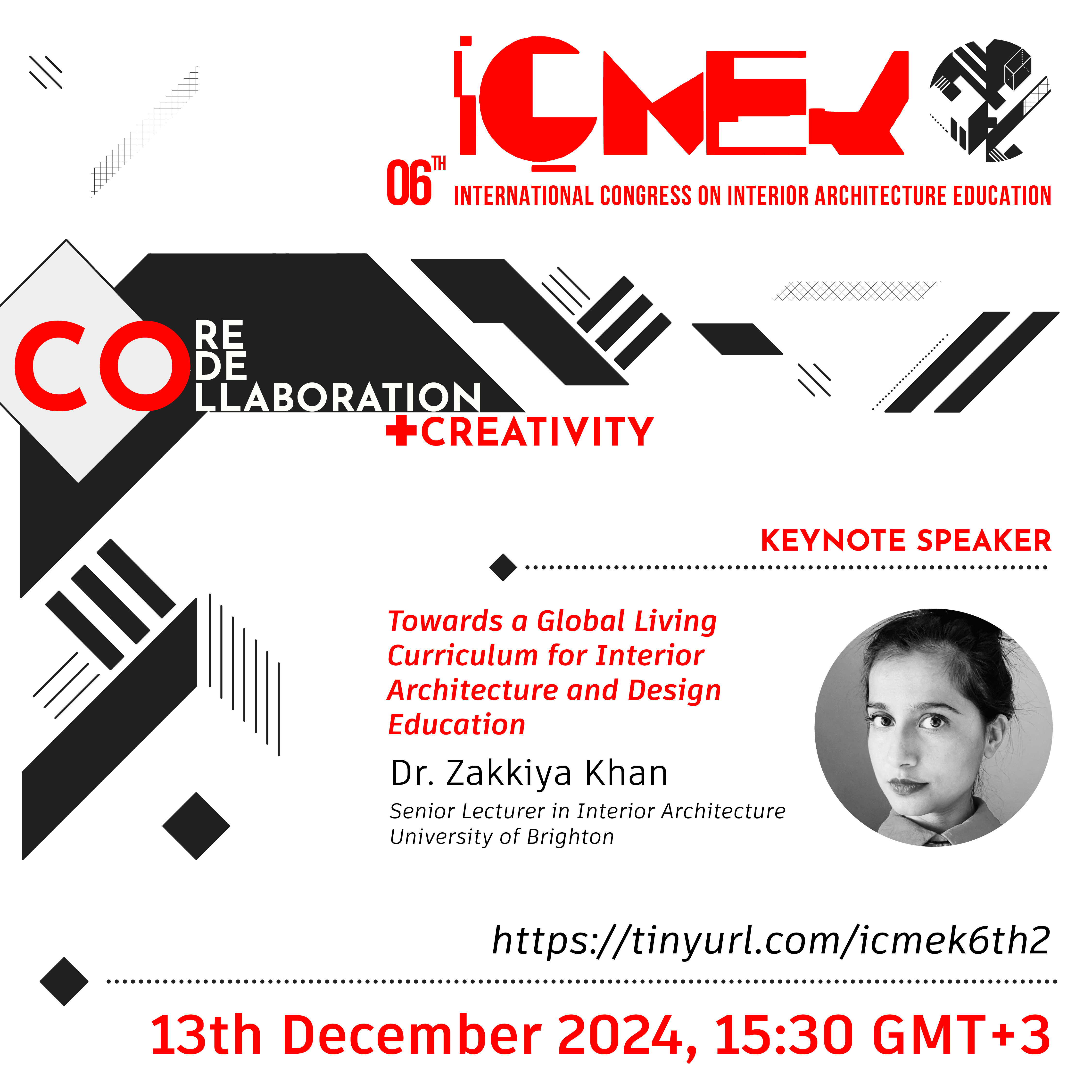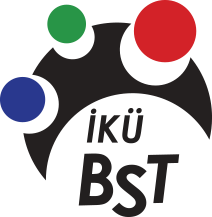| Announcement | 1 July 2024 |
| Abstract submission deadline | 16 September 2024 |
| Abstract submission deadline (EXTENDED) | 29 September 2024 |
| Registration | 1 December 2024 |
| Congress | 12-13 December 2024 |
THEME: CORE, CODE, COLLABORATION + CREATIVITY
Design, beyond being a mere preparation for a profession, is a discipline that fosters the development of an individual's creative intelligence and skills. It has now become an integral part of formal education in numerous countries. Design education encompasses a range of skills, including questioning, thinking, finding creative solutions to problems, and building relationships. This evolution has opened the door to a multifaceted study and development of design education, a journey that is both enlightening and inspiring.
While design education in pre-industrial societies was based on the master-apprentice relationship and the model of learning by doing, the Bauhaus School implemented a radical model based on experimental studies. Based on a constructivist approach in primary education, the Bauhaus model has co-operated with different art and design disciplines. Since then, many design education approaches that develop creative thinking and skills, follow technological developments, support social development, and ensure economic and ecological sustainability continue to be developed and tested in design education in parallel with the searches in the act of design.
Interior architecture, as one of the design disciplines, has been evolving and changing since the beginning of the 20th century, with a multidimensional structure that allows for new syntheses. The structure of interior architecture/design education, which has been institutionalised in parallel with the professional practice of the profession and includes different types of knowledge and skills, continues to be structured to respond to the rapidly evolving and changing needs of the times.
The primary objective of interior architecture education is to equip students with creative thinking skills, empowering them to tackle practical problems. Given the context of interior architecture and the intricacy of the issues, developing solutions necessitates interaction with various disciplines. Moreover, contemporary technologies, which have inevitably become more widespread, offer the opportunity to explore creative and innovative new ways of working in interior architecture education, underscoring the importance of these skills in our evolving world.
In summary, interior architecture is,
At its core (noun, the basic and most important part of something), a design discipline that involves creative (noun, the ability to produce original and unusual ideas, or to make something new or imaginative) action, that uses codes (noun, a system of words, letters, numbers or symbols that represent a message or record information secretly or in a shorter form) that the translation of requirements into abstract items and collaborating (noun, the act of working together with other people or organizations to create or achieve something) with different disciplines in the process.
In this respect, we believe it is important to discuss the core of interior architecture education, the codes that shape and will shape it, the collaborations created with it and the creative actions on an academic platform.
Without breaking away from the context of interior architecture discipline,
Is an interdisciplinary approach to education possible?
What is the future of design skills in the adventure of change and transformation of interior architecture education from yesterday to today?
Which disciplines do interior architecture collaborate with, and how does this affect the educational process?
What is the nature of creative thinking and its relationship with other disciplines?
Is a different kind of interior architecture education possible?
These are the questions we are asking.
İÇMEK2024, which will be organized jointly by Istanbul Kültür University- Department of Interior Architecture and Environmental Design and Trakya University- Department Interior Architecture, will try to set light on the essence of interior architecture education, the codes that constitute and will form it, collaborations and creative education models at an international level.
In this respect, the theme of İÇMEK2024, which aims to discuss interior architecture education and present various suggestions for its future, is “Code, Core, Collaboration and Creativity” was determined as. With "ICMEK2024 International Congress on Interior Architecture Education", we invite researchers in interior architecture education or professional life to think and produce in order to understand the nature of interior architecture design education and create original, creative education models and discuss experiences, by taking into account today's needs and conditions.
İstanbul Kültür University-Turkey
Congress CO-Chair
Trakya University-Turkey
Congress CO-Chair
|
Aliye Rahşan Karabetça, Assist. Prof.Dr. |
Istanbul Kültür University |
|
Ana Cocho-Bermejo, Dr. |
Anglia Ruskin Unıversity |
|
Andrew Milligan, Programme Director |
Duncan of Jordanstone College of Art & Design/University of Dundee |
|
Armağan Seçil Melikoğlu Eke, Assoc. Prof.Dr. |
Trakya University |
|
Arzu Erçetin, Assist. Prof.Dr. |
Istanbul Kültür University |
|
Aslı Akyıldız, Assist. Prof.Dr. |
Trakya University |
|
Ayhan Usta, Prof.Dr. |
Istanbul Kültür University |
|
Banu Apaydın, Prof. Dr. |
Marmara University |
|
Bilge Şan Özbilen, Assist. Prof.Dr. |
Istanbul Kültür University |
|
Bogdan Gorczyca, Prof. Dr. |
University of Ecology and Management in Warsaw |
|
Bülent Ayberk, Assist. Prof.Dr. |
Trakya University |
|
Büşra Ünver, Assist. Prof.Dr. |
MEF University |
|
Damla Altuncu, Prof. Dr. |
Mimar Sinan Fine Arts University |
|
Demet Dinçer, Assist. Prof.Dr. |
University of New South Wales (UNSW) |
|
Derya Adıgüzel Özbek, Assoc. Prof.Dr. |
Istanbul Kültür University |
|
Didem Baş, Prof. Dr. |
Trakya University |
|
Döndü Ferhan Yalçın, Assist. Prof.Dr. |
Istanbul Arel University |
|
Elif Tural, Assoc. Prof.Dr |
Virginia Tech University |
|
Filiz Tavşan, Prof.Dr. |
Karadeniz Technical University |
|
Francesca Murialdo, Dr. |
Middlesex University |
|
Gamze Akbaş |
Istanbul Kültür University |
|
Gülay Usta, Prof.Dr. |
Istanbul Kültür University |
|
Hatice Umut Tuğlu Karslı, Prof. Dr. |
Istanbul University |
|
Henry Sanoff, Prof.Dr. |
North Carolina University |
|
Ivan Cabrera, Dr. |
Valencia Polytechnic University |
|
İlgi Hacıhasanoğlu Toprak, Dr. |
USA |
|
İnci Alkan, Assist. Prof.Dr. |
Trakya University |
|
Kağan Günce, Prof.Dr. |
Eastern Mediterranean University |
|
Karel Deckers, Dr. |
KU Leuven University |
|
Luca Poncellini, Dr. |
NABA Nouva Accademia di Belle Arti Design |
|
Manfredo Manfredini, Assoc. Prof.Dr. |
The University of Auckland, New Zealand |
|
Meltem Eti Proto, Prof.Dr. |
Sapienza University of Rome |
|
Nilgün Olguntürk, Assoc. Prof.Dr. |
Bilkent University |
|
Nur Ayalp, Prof. Dr. |
Ted University |
|
Özge Cordan, Prof.Dr. |
Istanbul Technical University |
|
Özge Kandemir, Assoc. Prof.Dr. |
Eskisehir Technical University |
|
Özge Sever İslamoğlu, Assoc. Prof.Dr. |
Karadeniz Technical University |
|
Özgür Göçer, Dr. |
University of Sydney School of Architecture |
|
Penny Sparke, Prof.Dr. |
Kingston University |
|
Rabia Köse Doğan, Prof.Dr. |
Selçuk University |
|
Rana Kutlu, Prof.Dr. |
Istanbul Kültür University |
|
Roger Kemp, Dr. |
RMIT University |
|
Salih Salbacak, Assoc. Prof.Dr. |
Fatih Sultan Mehmet Vakıf University |
|
Sedef Doğaner, Prof.Dr. |
Wentworth School of Architecture and Design |
|
Selcen Nur Erikçi Çelik, Assist. Prof.Dr. |
Beykoz University |
|
Sezin Tanrıöver, Prof.Dr. |
Bahçeşehir University |
|
Tülay Zorlu, Prof.Dr. |
Karadeniz Technical University |
|
Tüüne-Kristin Vaikla, Dr. |
Estonian Academy of Arts |
|
Umut Şumnu, Assoc. Prof.Dr. |
Başkent University |
|
Zafer Ertürk, Prof.Dr. |
Maltepe University |
|
Zeynep Ceylanlı, Assist. Prof.Dr. |
Özyeğin University |
|
Zeynep Tuna Ultav, Prof.Dr. |
Yaşar University |
*In alphabetical order
|
Derya Adıgüzel Özbek, Assoc. Prof.Dr. (Congress Co-Chair) |
İstanbul Kültür University |
|
Armağan Seçil Melikoğlu Eke, Assoc. Prof.Dr.(Congress Co-Chair) |
Trakya University |
|
Gülay Usta, Prof.Dr. |
İstanbul Kültür University |
|
Rana Kutlu, Prof.Dr. |
İstanbul Kültür University |
|
Didem Baş, Prof.Dr. |
Trakya University |
|
Aslı Akyıldız , Assist. Prof.Dr |
Trakya University |
|
Bülent Ayberk , Assist. Prof.Dr |
Trakya University |
|
İnci Alkan , Assist. Prof.Dr |
Trakya University |
|
Arzu Erçetin , Assist. Prof.Dr |
İstanbul Kültür University |
|
Aliye Rahşan Karabetça , Assist. Prof.Dr |
İstanbul Kültür University |
|
Bilge Şan Özbilen , Assist. Prof.Dr |
İstanbul Kültür University |
|
Gamze Akbaş , Assist. Prof.Dr |
İstanbul Kültür University |
|
Yasemin Tuzlu Erol, Lecturer |
İstanbul Kültür University |
|
Esra Karaca, Res. Assist. |
İstanbul Kültür University |
|
Ayşe Nesligül Çevik, Res. Assist. |
İstanbul Kültür University |
|
Elif Ece Ilgaz, Res. Assist. |
İstanbul Kültür University |
|
Okşan Ölmez, Res. Assist. |
Trakya University |
| Esra Karaca, Res. Assist. | İstanbul Kültür University |
| Ayşe Nesligül Çevik, Res. Assist. | İstanbul Kültür University |
| Elif Ece Ilgaz, Res. Assist. | İstanbul Kültür University |
| Okşan Ölmez, Res. Assist. | Trakya University |
For details click here to download the extended abstract template.
Extended abstracts must be uploaded in PDF format. Click the box below to submit.
Upload Abstract
REGISTRATION FEE: The congress will be free of charge for the participants.
All extended abstracts are going to be selected according to double-blind reviews and accepted abstracts will be published in the Conference Extended Abstract E-Book with an ISBN number, which will be downloaded from the congress website.
Click the box below to registration.
Certificate of participation will be sent to all authors by e-mail.
The invisible human: AI & Design on the antropocene – Ana Cocho-Bermejo
Dr. Ana Cocho-Bermejo is an architect and computational researcher based in London. She focuses her research on the crossings of Artificial Intelligence and Design.She holds a PhD in technology in Architecture and a MPhil in Artificial Intelligence. Alumni of the Architectural Association and Bartlett’s AAC programmes she is currently interested in DAI, Distributed Artificial Intelligence processes. Along her teaching she tries to improve students’ skills on the implementation and understanding of complex protocols as well as aware of the need of research within architecture field on AI based processes for design innovation.
The Future of Interior Architecture Education: Integrating Core Skills, Emerging Technologies, and Industry Partnerships – Elif Tural
Elif Tural, PhD, is an associate professor of interior design at Virginia Tech. Dr. Tural holds a B.Arch from METU, an MFA in Interior Architecture and Environmental Design from Bilkent University, and a PhD in Environmental Design and Planning from Arizona State University. Prior to joining Virginia Tech, she was a post-doc at Oregon State University, where she also taught in the interior design program. Leveraging her multidisciplinary design background and experience in environment-behavior studies, her research primarily addresses how the built environment and indoor environmental comfort factors can foster health and wellbeing of occupants.
She has led and been part of several externally-funded interdisciplinary research projects, addressing active aging, institutional senior residential settings, design for neurodiversity, project-based learning environments, and acoustics in hybrid workplaces. Most recently, she is involved in the NSF-funded Building Ecology project, focusing on space/place dynamics in a living learning community, and the USDA-funded MRCS Smyth County Expansion project with a trauma-informed design focus. In addition to the lighting and acoustics, and health and interiors courses, Dr. Tural teaches design studios on workplace, cultural, and educational environments, in collaboration with community and industry partners where possible. She is an ex officio board member and past-chair of the Environmental Design Research Association (EDRA), and a member of the Interior Design Educators Council (IDEC), where she formerly chaired their Grants and Awards Committee. She was also the recipient of the 2017 Edison Price Fellowship by the Nuckolls Fund for Lighting Education.
Towards a Global Living Curriculum for Interior Architecture and Design Education - Zakkiya Khan
Dr. Zakkiya Khan is a Global Educator in Interior Architecture based at University of Brighton, with extensive experience leading courses in South Africa, United Kingdom, and Hong Kong. Their diverse experiences have provided them with unique perspectives on the globalization and localization of interior architectural education. As an advocate for decolonization, Zakkiya promotes inclusive practices across the sector through Equality, Diversity, and Inclusion (EDI) project leadership, talks, panel-speaking, and campaigns.
They have held the prestigious role of Co-Opted Expert of the board of the International Federation of Interior Architects/Designers (IFI), where they contributed to global educational policy aimed at advancing the profession. Zakkiya’s research specializes in retail design localization having delivered her work at international conferences. They are a published author of peer reviewed publications. As an Organizing Member of the Design Research Society’s Special Interest Group on "Designing Retail and Services Futures," Zakkiya advances retail design scholarship through edited books, conferences, publications, and student events. Zakkiya is the founder of the global mentorship program, Interior Design & Architecture Graduate Career Catalyst, a bespoke online course empowering graduates to transition successfully into industry. She remains committed to shaping an inclusive, practice and globally relevant future for interior architectural education.
| Announcement | 1 July 2024 |
| Abstract submission deadline | 16 September 2024 |
| Abstract submission deadline (EXTENDED) | 29 September 2024 |
| Registration | 1 December 2024 |
| Congress | 12-13 December 2024 |
The authors of the extended abstracts presented orally at the ICMEK 6th International Congress on Interior Architecture Education can have their abstracts published as an article if they pass the reviewing process of the TOJDAC (Turkish Online Journal Of Design Art And Communication), JOURNAL OF DESIGN STUDIO or KAPU- Trakya Mimarlık ve Tasarım Dergisi).
*The authors who would like to have their extended abstracts published as an article should prepare their abstracts following the spelling rules of the journals stated above. Articles must be uploaded to the system within 1 year after registration on the journal's official website.
*Authors are required to use the abstract numbers (icmek_410, icmek_560, etc.) given at the congress while uploading their articles. They must declare in the “notes to the editor” section that the extended abstract was presented at the ICMEK 6th congress.
Publishing process will be followed via the official web pages of the journals below.
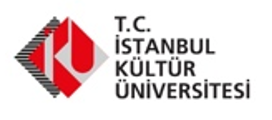
- Esra Karaca, Res. Asst.
- Ayşe Nesligül Çevik, Res. Asst.
- Elif Ece Ilgaz, Res. Asst.
- Okşan Ölmez, Res. Asst.
İstanbul Kültür University, Ataköy Campus, Faculty of Architecture, Department of Interior Architecture and Enviromental Design, 34158, İstanbul / TURKEY
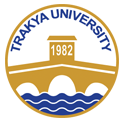
Trakya University, Faculty of Architecture, Macedonia Campus, Umurbey District, Harbiye Çeşme Street, No:2/1 22100 Merkez/ Edirne
E-mail: For participants please contact: icmekcongress@gmail.com
Venue: ICMEK 6th International Congress on Interior Architecture Education will be held online.
